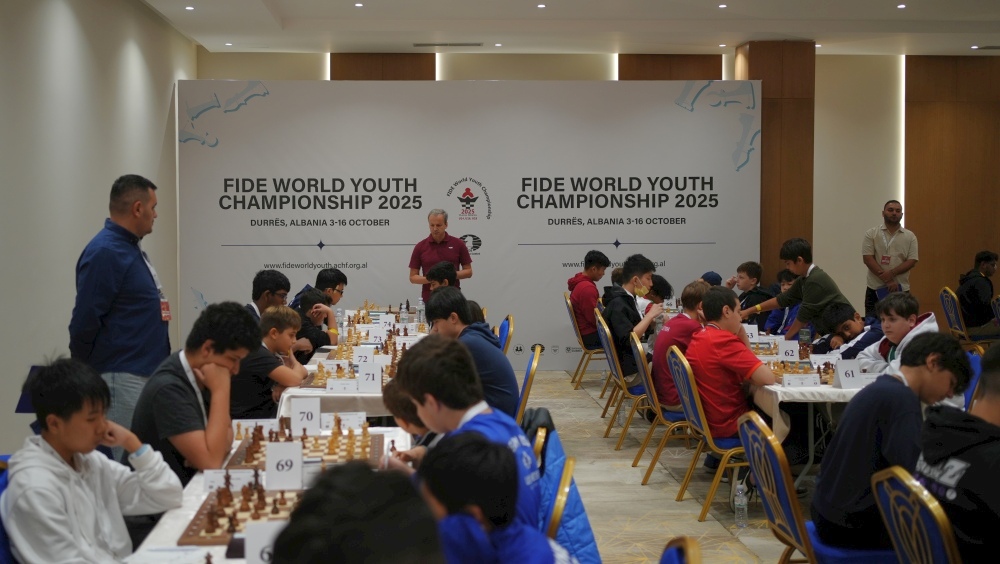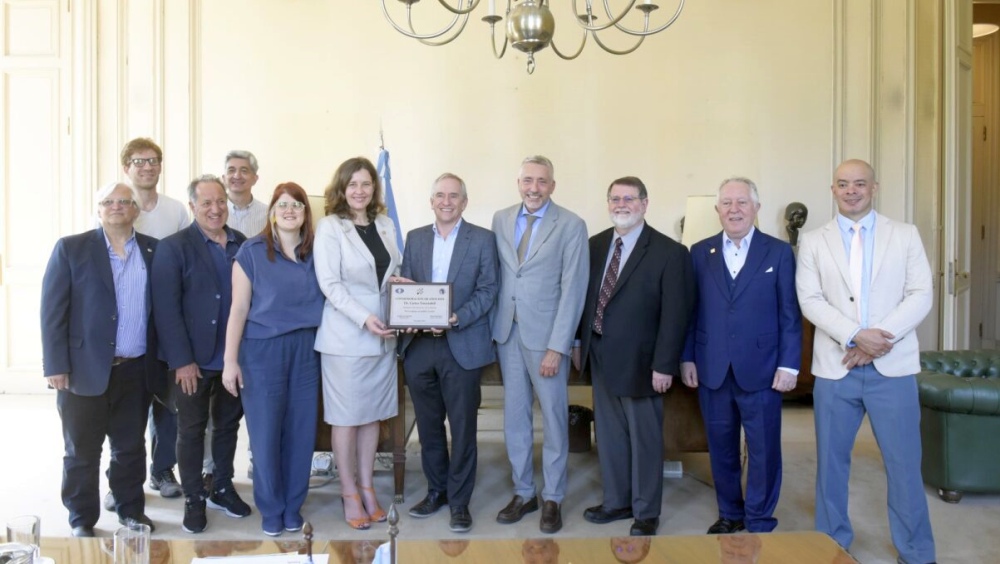FIDE World Youth U14, U16 & U18 Championships 2025 reach midpoint

As the FIDE World Youth Chess Championships 2025 passed their halfway mark in Durrës, the atmosphere remains electric. Hundreds of young players from around the world have battled through six rounds with determination, discipline, and sportsmanship — embodying the spirit of chess that unites nations beyond borders. The tournaments across all categories have been fiercely contested, with each round bringing new surprises. Remarkably, after Round 6, only three sole leaders have emerged among the six events: GM Jagadeesh Siddharth (Singapore) tops the standings in the U18 Open, WIM Manon Schippke (France) leads the U18 Girls, and FM Mark Smirnov (Kazakhstan) heads the U14 Open — all scoring 5.5/6. At least two participants are tied for first place in each of the other three tournaments. On October 10, players will enjoy their only rest day, taking the opportunity to recharge before the decisive three rounds ahead. Standings after Round 6: U14 – Girls, U14 – Open, U16 – Girls, U16 – Open, U18 – Girls, U18 – Open “It’s a good time for chess around the globe” In his remarks during the championship, FIDE President Arkady Dvorkovich expressed optimism and pride in the current growth of chess worldwide: “I think it’s a good time for chess around the globe. We have so many events — various levels for top players, young players, senior players, and team competitions. Every month there are several events under the FIDE umbrella, and many federations are developing quite successfully — especially in Asia, with countries like Kazakhstan, Uzbekistan, Turkey, and others.” He also emphasized the social and educational mission of chess, noting how governments are increasingly recognizing its power to teach focus, logic, and resilience: “It’s not just about playing chess or professional competition. The social mission of chess is developing, especially in education. We are trying to make sure it’s inclusive, that everyone is in one boat — and that the boat keeps moving forward.” A message to the young players The FIDE President took a moment to share a personal message with the young participants, who represent the future of the game: “Young players are the future of our chess. I can see they are really fighting, developing their skills, and even using AI tools to train — it’s a different world now. But I hope they also continue learning from good coaches, going deeper into the game. My message is simple: keep your love for chess alive. Play with joy, have fun, and through that, you will become great champions.” Albania’s warm hospitality FIDE President expressed gratitude toward the hosts, acknowledging the strong efforts of the Albanian Chess Federation (FSHSH): “I would like to thank Albania for hosting this great event in such a nice environment. Our Albanian friends are making sure that everyone feels comfortable here, showing their best talents. We hope to have even bigger events in Albania in the future.” Photos: Vlera Zenjullahi and Dardan Bajrami Official website: fideworldyouth.achf.org.al/
Argentine Ministry of Human Capital promotes strengthening of School Chess program

Argentina’s Ministry of Human Capital, headed by Sandra Petrovello, through the National Secretariat of Education led by Carlos Horacio Torrendell, has taken a significant step toward strengthening school chess across the country. This valuable initiative emerged thanks to the efforts of distinguished international authorities – Dana Reizniece-Ozola (Deputy Chair of the FIDE Management Board), Jerry Nash (Chair of the FIDE Chess in Education Commission), and Willy Iclicki (Chair of the FIDE History Commission) – during their visit to Argentina. In line with the projects announced at the School Chess Congress of the Americas, held in Vicente López last year, the National Secretariat of Education, together with the Argentine Chess Federation (FADA) – represented by its Executive Director Mario Petrucci – and FIDE, through Deputy Chair Dana Reizniece-Ozola, has achieved a historic milestone for education and sport through two key actions: The reinstatement of the National Chess Coordinator within the Area of Strengthening Education and Socioemotional Development, a role that will be assumed by Professor Juan Durán. The appointment of 24 provincial representatives – one in each province – who will work together on designing and implementing projects for the Chess in Schools program. Ludovico Grillo, Mario Petrucci, and Alejandro Sass also contributed their expertise to the initiative, supporting the promotion of educational chess in the region. At the same time, the recent creation of the Association of Chess Teachers and Educators (APEA), chaired by Ricardo Luna – a well-known figure with a long track record in school chess – marks another significant advancement. APEA will work in coordination with FADA to expand teacher training and consolidate school programs nationwide. This agreement represents a major milestone in integrating chess into Argentina’s educational system, reinforcing its role as a tool for pedagogy, inclusion, and socioemotional development, in line with the standards promoted by the International Chess Federation (FIDE).

